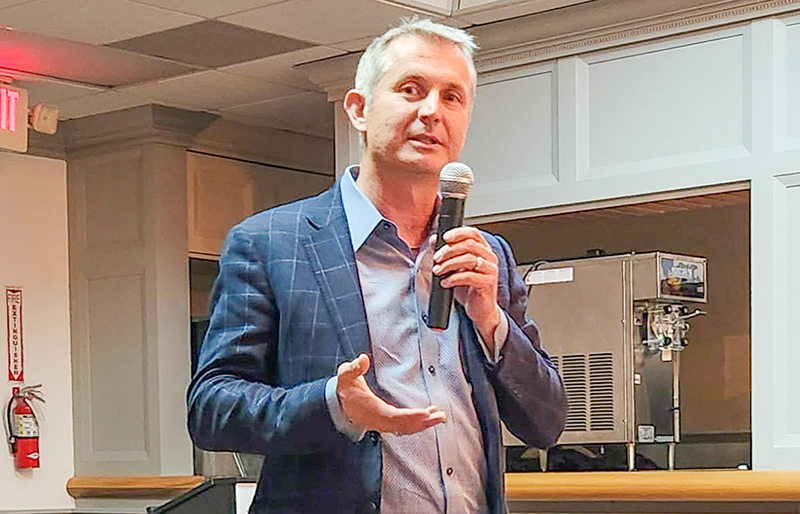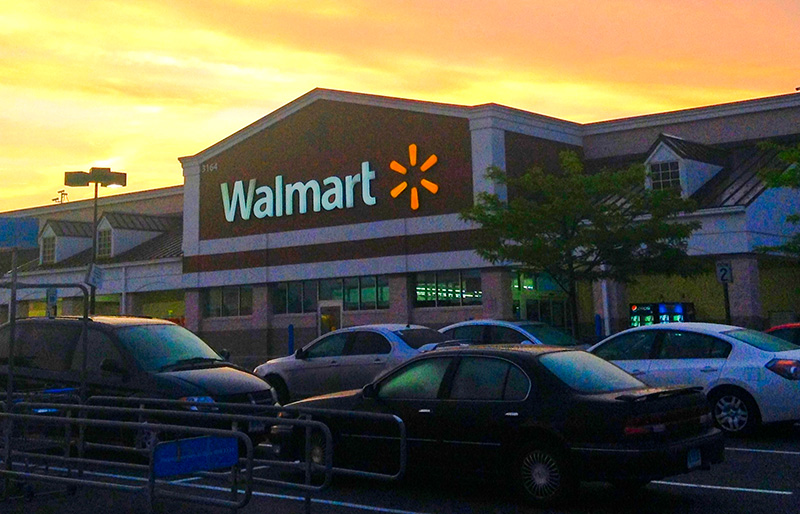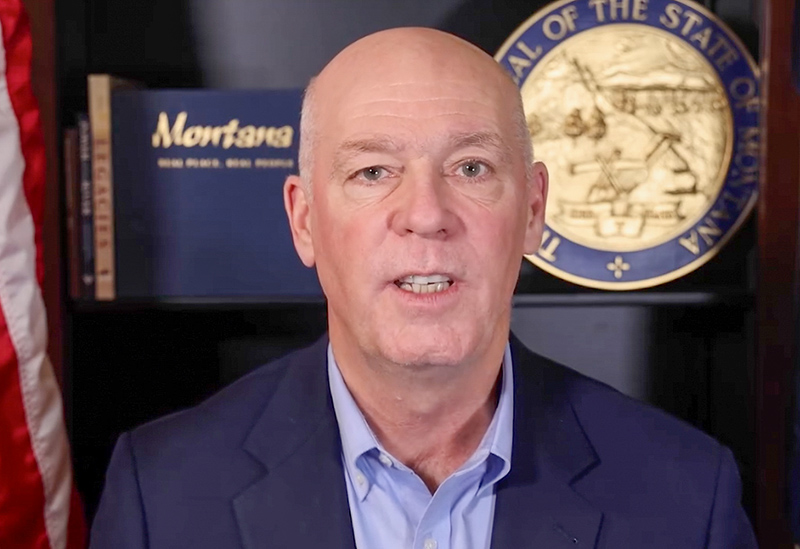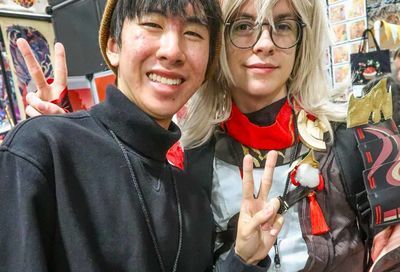Ruby Corado’s Essential Service: ‘I protect people, especially those inside Casa Ruby’
Casa Ruby's founder isn't backing down from the challenges posed by the coronavirus. Instead, Ruby Corado is facing it head-on

These days, Ruby Corado doesn’t get much sleep.
“I sleep in chunks,” says the founder and driving force behind Casa Ruby. “If I get a call for help at three in the morning, more than likely I will be awake. If not, my phone is always on.”
Corado is always on. Tireless, big-hearted, and emotionally generous, she’s become a role model for the local LGBTQ community. Casa Ruby, the organization she founded in 2004, has grown over the years to offer an impressive array of services and programs, many of which are devoted to the most disenfranchised within the LGBTQ community.
In addition to a 24-hour drop-in service, Casa Ruby operates three distinct shelter and housing programs targeted to people experiencing homelessness or housing insecurity. The center also offers preventative health services, social services, and therapeutic and mental health services for victims of violence. It hosts a dedicated Trans Life Center, providing hot meals, clean clothing, computer access, and legal support for those in the process of gender transition.
It was in the late 1980s that Corado left her home country of El Salvador for a new life in the United States. “I decided I needed to leave when I saw that my life was in danger for political and sexual orientation reasons,” she said in a 2006 cover interview with Metro Weekly. She did not make her transition until 1992, a decade after landing in D.C., but it coincided with a rise in her activism, a spirit that drove her career choices. Eventually, Casa Ruby became her true calling.
“I am a caregiver,” she says. “I protect people, especially the people that are inside Casa Ruby.”
Lately, the organization has been working overtime to meet the demands of its clientele while navigating the coronavirus pandemic. “I’ve aged in the last two weeks alone,” she said during a recent phone call. Still, despite her own at-risk status with regard to COVID-19 (she is both HIV-positive and a diabetic), the 50-year-old has thrown her full force into caring for her “kids.” “I call everybody a kid,” she laughs. “I have 63 adults who are like my damn kids. We have a little bit over 100 that are currently sleeping at all of our facilities.”
Despite the uncertainty and intensity of the current situation in the D.C. area, Corado is determined to help as much as possible. As an organization that provides essential services, Casa Ruby is open and staffed, though extreme safety precautions are in place. She cares equally for her staff — she sent anyone with so much as a sniffle home weeks before the pandemic erupted — as much as her clients. Her underlying philosophy is one of ensuring that no one ever need feel alone.
“The one promise I make — and that I have never broken — is that people who come to Casa Ruby no longer have to struggle alone,” says Corado. “There are people who come to Casa Ruby in their worst moments. People who survived suicide — and the hospital, instead of throwing them on the streets, sends them to me. There are people who come here from incarceration. There are people who get shot and they need to be saved. There are people who get raped, there are people who survive overdose. They come to Casa Ruby. And guess what? I haven’t broken that promise. Because the one thing I know is, while I can’t get them everything immediately, I will. I will get them something at some point. The one promise I make to them is they don’t have to struggle alone. I keep my promise.”

METRO WEEKLY: Tell us a little bit about Casa Ruby’s mission.
RUBY CORADO: Casa Ruby is a 24-hour crisis intervention safe space for LGBTQ people in the DMV. We address the unmet needs of LGBTQ people, especially those who are transgender, gender non-conforming, gender non-binary. People always ask me, “What do you mean by that?” And I say, “Well, our gay people are really gay. And our lesbians are really very lesbian.” They are people who normally wouldn’t fit in, in cisgender or in heteronormative America.
MW: How long have you been operating?
CORADO: This has been my work of 27 years, starting in 1992. I started the agency in 2004. I registered with the IRS in 2006 and I opened the first center in 2012. So we’re going on eight years of an actual space that grew from a 200-square-foot little office space down on Georgia Avenue, to now having a 22,000-square-foot facility in Upper Northwest.
MW: That’s incredible.
CORADO: Well, I thank the community, who has been with me since day one. It would have never happened without community support — the doors that people opened for me, the people who really made it possible. Right now at this time, I still get calls from those original supporters. They’re like, “Is everything okay?” I’m like, “Yes.” They still donate $10, $20 here and there. The people of this city make Casa Ruby what it is today, and they continue to support it.
MW: The community has great affection for Casa Ruby. What about your organization specifically unlocks people’s hearts?
CORADO: I founded this organization to be a grassroots organization. And we continue to be a grassroots organization, which means that we have thousands of $5 donors. We have thousands of $10, $20 donors. When we talk about the big fundraisers, we are not there yet. We have very few major donors. But we do have lots of people. We have people on 14th Street who have small businesses, and still find time to come and drop off food at Casa Ruby. [Miss Pixie’s owner] Pixie [Windsor has] been a big supporter of Casa Ruby and she brings food every weekend in her own car.
So I believe it’s because the organization still has the spirit of being grassroots. But we do impact the national agenda in this country — we continue to be a local organization that supports pretty much the rest of the country. Casa Ruby not only supports LGBTQ people in need from the DMV, we have people from all over the country. We have people from different countries who Google LGBTQ, and we pop on their search and they dream that one day that they’ll make it to us.
MW: You’re a beacon, in some respects.
CORADO: I would say that we are. I have always said this: I believe in dreams. There were many times in my life where my reality was a living nightmare. It was very difficult surviving as a young, at times homeless, kid. But I believe in dreams. I really believe that your life will be better one day. And I’ve always said dreams become bigger when other people dream with you. I feel that is the Casa Ruby story. People dream that marginalized people, that homeless people, that people who are vulnerable, also have the chance to turn their life around.
Usually, I have a booth at Pride, and there’s lots of kids who come in with their parents and always donate $2. And these kids who are in LGBTQ families say to me, “We love Casa Ruby.” We have donors in Fairfax, we have donors in Prince George’s County. They don’t necessarily directly need the services of Casa Ruby, but they know that they are contributing to making the lives of someone better. And that shows me how it’s not just about the everyday work of Casa Ruby, which is crucial for so many people, but it’s also an opportunity for other people to also be involved. And I love that part. It really fills my heart because I may not have the $20,000 donors yet, but I know that I have thousands of $1 and $5 donors, and that makes me feel special.

MW: What’s your occupancy right now?
CORADO: Right now we have over one hundred youth and adults who are sleeping in our facilities. And we have about 230 people who have come on a daily basis just for food, or just for emotional support, just to say hi. We are not limiting services, but we are [stopping] the big group activities.
The blessing is that we have four facilities, including one in Southeast. Our main operation is out of the 22,000 footage facility that we have in Northwest. We have a huge patio in the back. We have a huge parking lot in the front. It is a blessing because the building really can accommodate a lot of people and they don’t have to be in one tiny facility breathing on each other.
MW: How did you prepare for the current crisis we’re in?
CORADO: I’ve been doing crisis response for many, many years. So I am very aware that preparation is key. When I heard that the epidemic was in China, I said it’s just a moment — just a moment — before it will hit the United States. And I started preparing. I started calling my contacts. We had a donor who was aware that the Gaylord Hotel was going to be distributing some food that they were not going to use and I got 100 pans of protein, food that actually now I have in about eight freezers in the building and that I can use every day to feed people. I have food banks that, when they’re going to throw out the food, they call us. They call us in the evening, and they’re like, “Hey, we got some food for you.”
Right now, we’re limiting some of the donations to actual food, cleaning, and hygienic products. And we’re not taking too much clothing and stuff like that because we also must practice the social isolation model, which means we are trying to limit the number of people that come to Casa Ruby. I have never been a super freak when it comes to cleaning. But I’ll tell you everybody here is in cleaning mode.
We’re trying to [keep] the place safe for the people who live at Casa Ruby. We don’t want anybody who comes to Casa Ruby to get [infected with] anything. So we are limiting the interaction. I want to make sure that we continue to stay open. A lot of preparation.
MW: If people want to donate something to you right now, clothing is not the way to go?
CORADO: What they can do is prepare it. Make sure that they bag it, they box it, and they keep it for when we do have the opportunity to have access to it. Because we’re going to go back to normal life sooner rather than later. At that point, it will be needed.
MW: How are you caring for yourself?
CORADO: I’m a person who is living with HIV. I am a person who has a compromised immune system. And just about two weeks ago I became a full-blown diabetic. So I want to make sure that people who have underlying conditions are my top priority. A lot of people have called in sick. I want them to be safe. I have people who are on my staff who have issues with their heart that I say, “Hey, go home. Go home.” I want to make sure that they stay home.
I haven’t gotten sick. I think about the power of our minds. I think how powerful we are as human beings. I have incredible amounts of stress. How am I going to keep the food coming? How am I going to keep the doors open? How am I going to run the daily operations? And on top of that having an immunocompromised system? I think the power of my mind is saying, “You know what, I’m going to be fine.” I prepared myself.
So I’m not scared. I am taking every precaution. I have my mask, I have my hand sanitizer, I have my wipes. I am wiping all the doorknobs in cars. I am very aware of what I need to do. I do limit my contact with people that I don’t know. Maybe this is a false sense of safety, but I feel that I am fine. Today, I am okay. And today the people at Casa Ruby are okay. We don’t have any cases.
MW: You have a shelter, and presumably an abundant need for things like toilet paper. How did you feel when you watched the news and saw people literally filling their supermarket carts with more toilet paper than they could possibly need, taking that resource from others?
CORADO: I’m so glad you brought this point. Let me tell you how disappointed and frustrated I am. I drove this week to probably ten Ace Hardware stores to buy four toilet papers. I went from Northeast to Northwest. I think I hit them all. I was only able to buy four rolls. And the mask — the N95 — I could only buy four. I saw people walking out with four masks — individual — and I’m like, “Why do you need four?” Here I am with over 100 employees and I need to make sure that when someone walks through the door who we don’t know if they are sick or having symptoms, I need them to be safe.
So it is very frustrating. People really just are not caring. I think when people do care, they share. And very often we are not attuned to be sharing in our communities, and that’s why people do this.
MW: Do you think Americans are by nature selfish?
CORADO: There are a large number of Americans who are extremely self-centered, selfish, and think that they deserve everything.
But I’m a big believer that there are good people in the world. And I’m just going to make it very clear: when I talked about fundraising earlier, I don’t get a big chunk of how much money is raised in this city. But I do get those people who are very conscious. Sometimes all they have is $5. But guess what? They share that $5 with me. Those are the people who really can change the world.
For more information about Casa Ruby, visit www.casaruby.org.
To make a donation to Casa Ruby, visit www.casaruby.org/donate.
Support Metro Weekly’s Journalism
These are challenging times for news organizations. And yet it’s crucial we stay active and provide vital resources and information to both our local readers and the world. So won’t you please take a moment and consider supporting Metro Weekly with a membership? For as little as $5 a month, you can help ensure Metro Weekly magazine and MetroWeekly.com remain free, viable resources as we provide the best, most diverse, culturally-resonant LGBTQ coverage in both the D.C. region and around the world. Memberships come with exclusive perks and discounts, your own personal digital delivery of each week’s magazine (and an archive), access to our Member's Lounge when it launches this fall, and exclusive members-only items like Metro Weekly Membership Mugs and Tote Bags! Check out all our membership levels here and please join us today!
























You must be logged in to post a comment.